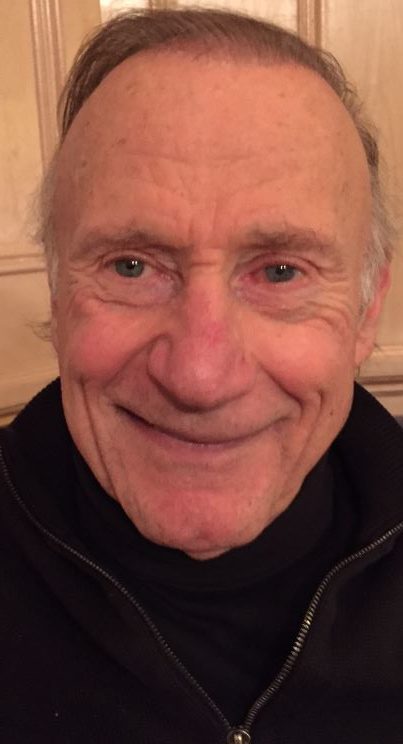Presidential candidate Hillary Clinton was involved in a children’s sex slave ring that operated from a pizza shop in Washington, DC.
The New York Times once reported that a man had died, in spite of the fact that he was still a living and breathing specimen.
These two tidbits share a common thread; both of them are fake news. The latter, however, will soon make legitimate headlines when Dick Brukenfeld’s comedy, The Big Broadcast on East 53rd begins performances this Friday at Off Broadway’s TBG Theater.
Manhattan Digest recently spoke with the playwright to discuss the new show,his former profession, and our society’s insatiable consumption of media twaddle.
MD: The Big Broadcast on East 53rd. I’ve read the press release, but please tell our readers what it’s all about.
DB: Well, the whole concept of fake news is like the plague of our time and this play deals with that phenomenon. It’s about a woman who is fed up with her husband’s eccentric behavior. She decides to call and read his obituary into the NY Times. The whole story is based around his efforts to prove that he is still alive. Everything spins out of control and different people in his environment respond in different ways. He has his work cut out for him.
MD: Did you base any of the characters on anyone from your own life?
DB: No. It’s an absurd comedy. I’m sure people will recognize some of the characters, but it’s not based on anyone I’ve personally known.
MD: Did you write this in response to the flood of “fake news”
or was this in works before that term became so popular?
DB: It was an idea that I had long before that phrase was thrown around, but it fits right into our current times-particularly with our President, who has an extraordinary imagination!
MD: What does this show say about fake news and our appetite for it?
DB: What you see in this play is the “why” of why people buy into it. Everyone has their reasons and that’s what I explore in this piece. I used to be a print journalist and one of the things that I found was that I could cover a story and some colleagues could cover that same story and see it in a completely different way. We all bring our own lens to whatever we see. Print and television news have become much less objective than they used to be.
MD: You were a long time critic for the Village Voice. How do you think being a reviewer helped prepare you for playwriting?
DB: I was actually writing plays before I became a critic, but the theater is a rather particular medium. The more experience I had seeing it, the more it helped my writing.
MD: Do you ever worry how critics will respond to your work?
DB: Sure! But today, there is much less criticism in major newspapers. Now, critics on the internet have started to take over.
MD: Do you think that having been on both sides of the stage makes you a kinder critic or more of a harsh one to your fellow playwrights?
DB: Well, I don’t write criticism anymore but if I did, I think I would be kinder (laughs).
MD: Is this the first time working with your director, Charles Maryan?
DB: No. We’ve done a lot together. He directed an earlier version of this play and we’ve worked to develop it. We go back a long way.

MD: Are there any projects that you’re currently working on?
DB: Right now, this is the only one. I did a show a couple of years ago called Blind Angels. It was about terrorism-so obviously, not a comedy!
MD: You seem to run the gamut in terms of themes and styles.
DB: I prefer writing comedy, but there’s always some issue out there that needs to be commented on or attacked.
MD: It’s good to have a variety. If we only had escapist plays, it would be like eating a steady diet of junk food. If we only had intellectual, currently relevant pieces, we’d all be depressed.
DB: Right. Well, I will guarantee that anyone who sees this play will come out in a brighter frame of mind and will be much happier.
The Big Broadcast on East 53rd begins Friday, February 3rd and runs through Saturday, February 25th at TBG Theater (312 West 36th Street). For tickets and information, visit the website.
